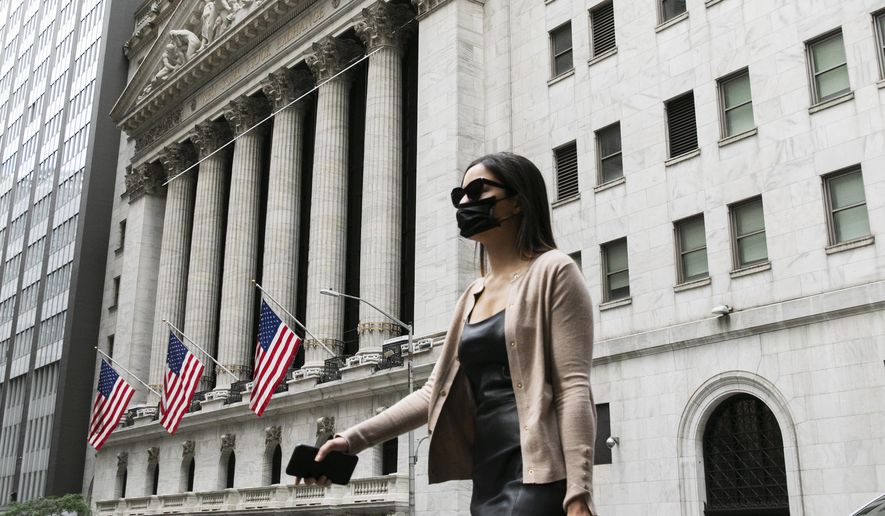The Congressional Budget Office is predicting the economy will come roaring out of the coronavirus recession with growth surging to 12.4% the rest of this year, before settling back into the longer-term trend of about half that.
Unemployment will peak at more than 14% but “fall quickly” as the economy rebounds later this year and into next year, the CBO said in its new update Thursday.
But it will still be at nearly 6% in 2024, and through the end of the decade will never reach the historically low levels of just a few months ago, CBO said.
In January, CBO had predicted unemployment would average 4.2% for the decade. Now it figures that average will be 6.1%.
Likewise annual Gross Domestic Product, the chief measure of the economy, will be 3.4% lower on average over the decade.
The projections assume that most social distancing requirements will fade — though new mandates coinciding with coronavirus flareups are also incorporated. That lessening of restrictions will unleash the economy.
“Real GDP and employment are projected to rebound quickly in response,” CBO said.
CBO analysts said low-income workers — and African Americans, Hispanics and women — have been hit particularly hard by the downturn, chiefly because they were more likely to hold jobs in the service sectors that were hardest-hit.
Those numbers have sparked new calls among Democrats for another round of coronavirus assistance from Congress, in addition to the $3 trillion already approved.
In particular, Democrats want to extend “supercharged” unemployment benefits beyond the end of July, which is when they’re slated to expire.
Those enhanced benefits add $600 a week to whatever out-of-work Americans are already collecting from state benefits. In some states it works out to an annualized figure of more than $60,000.
Republicans, though, say extending those benefits could delay the economic resurgence by enticing people to stay on unemployment rather than return to jobs. Analysts have calculated that most of those out of work are collecting more from the unemployment checks than they were getting paid by work before the pandemic.
CBO said Thursday there’s tremendous uncertainty surrounding economic projections.
The spread and mortality of the disease and chances for a vaccine are all still uncertain, and CBO said it’s also tough to predict exactly how businesses, consumers and government bodies will respond to the $3 trillion Congress has approved in coronavirus assistance.
Plus, CBO can’t be sure of the numbers it’s using.
“A further contributor to the overall uncertainty is that the speed and intensity of the recent downturn have greatly increased the difficulty of recording and compiling reliable economic data; CBO’s projections are based on data that may later be substantially revised,” the nonpartisan agency said.
• Stephen Dinan can be reached at sdinan@washingtontimes.com.




Please read our comment policy before commenting.